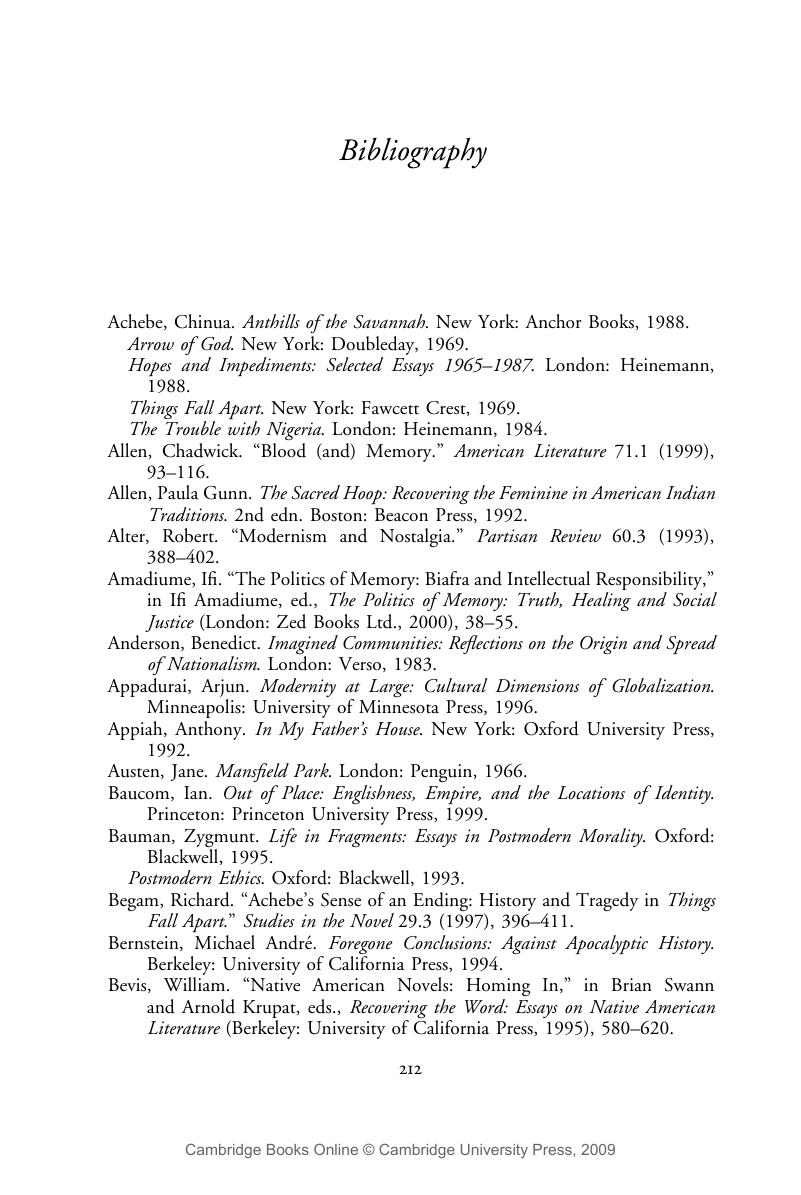Book contents
- Frontmatter
- Contents
- Acknowledgments
- Introduction: nostalgia, ethics, and contemporary Anglophone literature
- 1 Narratives of return: locating ethics in the age of globalization
- 2 Nostalgia and narrative ethics in Caribbean literature
- 3 “Loss was in the order of things”: recalling loss, reclaiming place in Native American fiction
- 4 Refiguring national character: the remains of the British estate novel
- 5 Appeasing an embittered history: trauma and nationhood in the writings of Achebe and Soyinka
- Conclusion: nostalgia and its futures
- Notes
- Bibliography
- Index
- References
Bibliography
Published online by Cambridge University Press: 22 September 2009
- Frontmatter
- Contents
- Acknowledgments
- Introduction: nostalgia, ethics, and contemporary Anglophone literature
- 1 Narratives of return: locating ethics in the age of globalization
- 2 Nostalgia and narrative ethics in Caribbean literature
- 3 “Loss was in the order of things”: recalling loss, reclaiming place in Native American fiction
- 4 Refiguring national character: the remains of the British estate novel
- 5 Appeasing an embittered history: trauma and nationhood in the writings of Achebe and Soyinka
- Conclusion: nostalgia and its futures
- Notes
- Bibliography
- Index
- References
Summary

- Type
- Chapter
- Information
- Ethics and Nostalgia in the Contemporary Novel , pp. 212 - 223Publisher: Cambridge University PressPrint publication year: 2005



